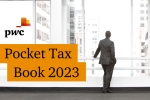Vietnam's decarbonisation efforts have gained momentum, yet, the country is still in its infancy stages of accelerating its green growth journey. Abhinav Goyal, Director, Capital Projects and Infrastructure, PwC Vietnam, highlights Vietnam’s current decarbonisation progress and outlines how business can be a part of this effort.
Vietnam among top performers in APAC decarbonisation efforts
While the entire region faces the ambitious challenge of achieving a 17.2% decarbonisation rate to meet the 1.5-degree climate targets, progress is underway, as highlighted in PwC's 2023 Net Zero Economy Index. The good news is that APAC more than doubled its decarbonisation efforts in 2022, reaching a rate of 2.8%. However, there's still a significant gap to bridge, requiring a sixfold increase in decarbonisation efforts across the region.
Within this landscape, Vietnam ranks among the top five economies in APAC that have surpassed the decarbonisation rate required to meet their individual Nationally Determined Contributions (NDCs). In terms of actual rates, Singapore takes the top spot with 10.8%, followed by New Zealand (8.5%), Vietnam (6.5%), and South Korea (4.4%).
In the ASEAN region, Vietnam falls just behind Singapore, demonstrating a strong commitment to decarbonisation based on its 2022 figures. Vietnam's 6.5% rate in 2022 significantly exceeds the 2.5% needed to achieve its NDC target.
Several factors are steering Vietnam's impressive decarbonisation rates. The country has seen a rapid deployment of renewable energy sources in recent years. Additionally, Vietnam's strong international commitments on climate change, coupled with the government's prioritisation of green growth as a key policy and development strategy, are driving these positive results.
However, it is important to acknowledge that Vietnam is still in the early stages of accelerating its green growth journey. While the policy framework is steadily becoming more robust, it remains a work in progress. This highlights the exciting potential for continued progress in Vietnam's decarbonisation efforts.
Decarbonisation rate and NDC (tCO2/GDP) in Asia Pacific economies, 2022
Sources: PwC Net Zero Economy Index 2023, IMF12, EDGAR, Energy Institute13, and Climate Resource14
Notes:
1 The economies’ decarbonisation rate (carbon intensity) excludes the Forest, Land, and Agriculture (FLAG) emissions and removals as it only covers primary energy use.
2 Singapore figure only includes CO2 emissions from energy. It excludes CO2 emissions from flaring and industrial processes and methane.
Strengthened commitment to Net Zero
Vietnam's recent efforts towards net zero emissions demonstrate a significant shift in national policy and commitment. The COP26 climate conference in 2021 served as a turning point, prompting Vietnam to make ambitious pledges. Since then, policymakers have successfully embedded decarbonisation and green growth as core elements of the country's development objectives. This is evident in a series of impactful decisions, strategies, and resolutions implemented over the past two years.
The government's commitment shines through a range of key policies:
- National Strategy for Green Growth outlines the critical need for decarbonisation across major economic sectors.
- National Climate Change Strategy emphasises proactive adaptation to climate change, greenhouse gas reduction to net zero, and addressing climate vulnerabilities and risks.
Law 72 on Environmental Protection mandates a roadmap approach for carbon reduction.
Decision 01 and Decree 06 clearly identify sectors, decarbonisation targets, and emission facilities required to conduct GHG inventories and implement mitigation actions, including timelines for a carbon market rollout.
Power Development Plan 8 (PDP8) and the Just Energy Transition Plan (JETP) both focus on decarbonising the power sector in line with government priorities.
Decision 876 establishes an Action Program for transitioning to green energy and mitigating carbon dioxide and methane emissions from transportation.
These highlight just a few examples of how policymakers have actively pursued comprehensive, economy-wide policies geared towards achieving decarbonisation goals.
These early efforts to manage greenhouse gases have yielded positive results in various sectors, including energy, transportation, agriculture, land use and forestry, and industry. According to Vietnam's updated Nationally Determined Contribution (NDC) document in 2022, an estimated 85 million tonnes of CO2 were reduced between 2014 and 2020.
Vietnam's top-down policymaking approach deserves recognition for taking major steps in setting the direction. However, it's crucial to swiftly develop secondary implementation plans, circulars, and guidelines. These will translate the vision into actionable plans at the local level, ensuring effective execution and maximising the impact of Vietnam's ambitious decarbonisation agenda.
Charting Vietnam's Course to Net Zero Emissions: Recommended Solutions
The path towards net zero emissions for Vietnam requires a strategic and action-oriented approach. Here are some key steps and recommendations to consider:













